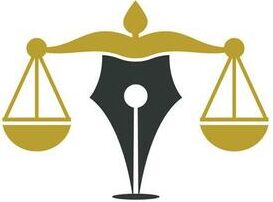Dealing with child custody is tough. You might hear a lot about physical custody vs legal custody and wonder what the difference is. It’s super important to know this if you’re stuck in a custody situation.
Mediation can help a lot here! It’s a way for parents to talk openly and make decisions together. In this blog, we’ll show you how mediation can solve problems about who the child lives with and who makes important decisions for them.
Let’s walk through this together, step by step.
Understanding Physical Custody
Physical custody is about who the child lives with after their parents split up. It covers everyday care like food, a home, and safety.
Deciding this can cause arguments because it decides how much time each parent gets with the child. Mediation helps parents work together to decide what’s best for the child, keeping a good relationship with both parents.
The Role of Legal Custody
Legal custody is about who gets to make important decisions for a child, like what school they go to, doctor visits, and what religion they follow. Courts often like both parents to share this responsibility. By working together, parents can decide how they’ll talk to each other and make these big decisions together, always thinking about what’s best for the child.
The Advantages of Mediation
Mediation is a great choice for solving custody arrangements because it focuses on working together and talking things out. It lets parents make important decisions about their kids, instead of a court deciding for them. Mediation is usually quicker and cheaper than going to court and creates a friendlier atmosphere. This is good for both parents and kids.
Structuring a Mediation Session
A good custody mediation session needs a clear plan. It starts with both parents talking openly about what they want for their kids, both where the kids will live and who makes decisions for them. The mediator, who doesn’t take sides, helps them find agreement and make fair compromises. The focus is always on divorce and custody, aiming to agree on solutions that keep the child happy and healthy.
Developing a Parenting Plan
Making a detailed parenting plan is very important in disputes with custody schedules. This plan talks about who the child will live with when they’ll spend time with each parent, how parents will make decisions, and how to solve any future problems. Divorce lawyers can assist with creating a parenting plan that helps to avoid confusion and makes co-parenting easier after separation.
The Impact on Children
Mediation is really helpful for kids. When parents decide to solve their disagreements about custody this way, they show they can work together nicely. It means less fighting for the child to see and teaches them how to solve problems and make compromises. This helps children feel safe and cared for, even when things in their family are changing.
Navigating Forward in Physical Custody vs Legal Custody Disputes
Navigating the choppy waters of physical custody vs legal custody disputes demands patience and teamwork. It’s crucial to grasp the nuances between these forms of custody to collaborate effectively for your child’s sake.
Mediation shines as a beacon of hope, putting your child’s needs at the forefront and guiding parents toward a harmonious future. Mastering these challenges is key to ensuring the happiness and well-being of children caught amid family breakups.

